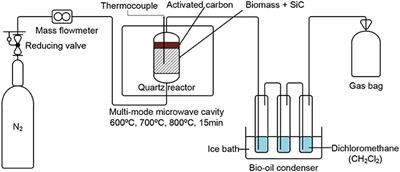ORIGINAL RESEARCH
Published on 30 Jun 2020
Mesoporous Zeolitic Materials (MZMs) Derived From Zeolite Y Using a Microwave Method for Catalysis

doi 10.3389/fchem.2020.00482
- 6,077 views
- 27 citations
4,389
Total Downloads
25k
Total Views and Downloads
You will be redirected to our submission process.
ORIGINAL RESEARCH
Published on 30 Jun 2020

REVIEW
Published on 05 May 2020

ORIGINAL RESEARCH
Published on 17 Apr 2020

ORIGINAL RESEARCH
Published on 24 Jan 2020

